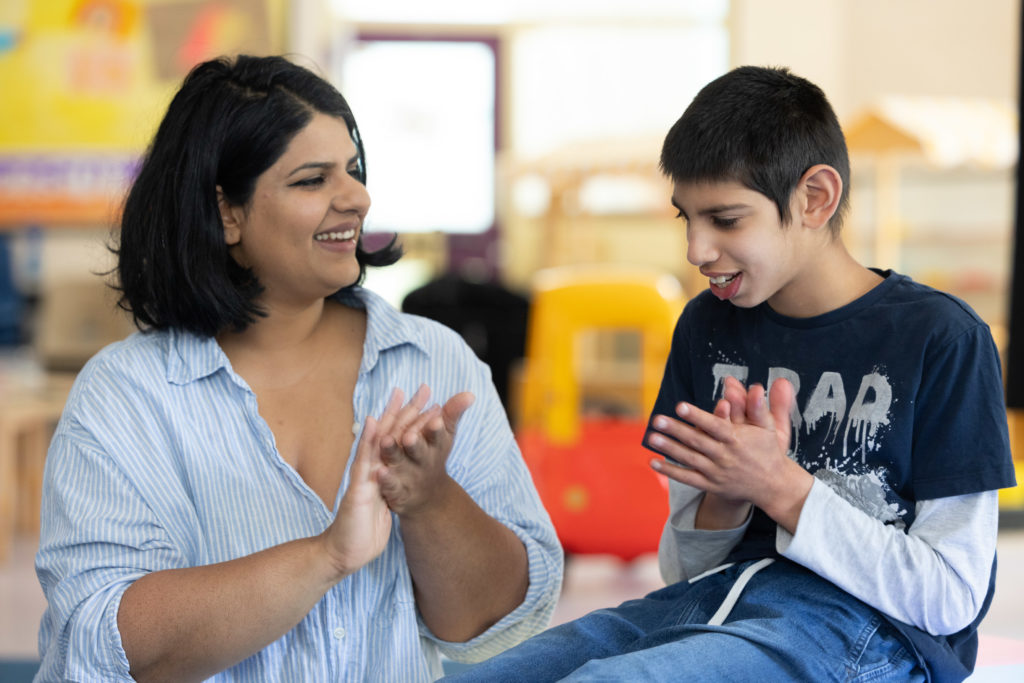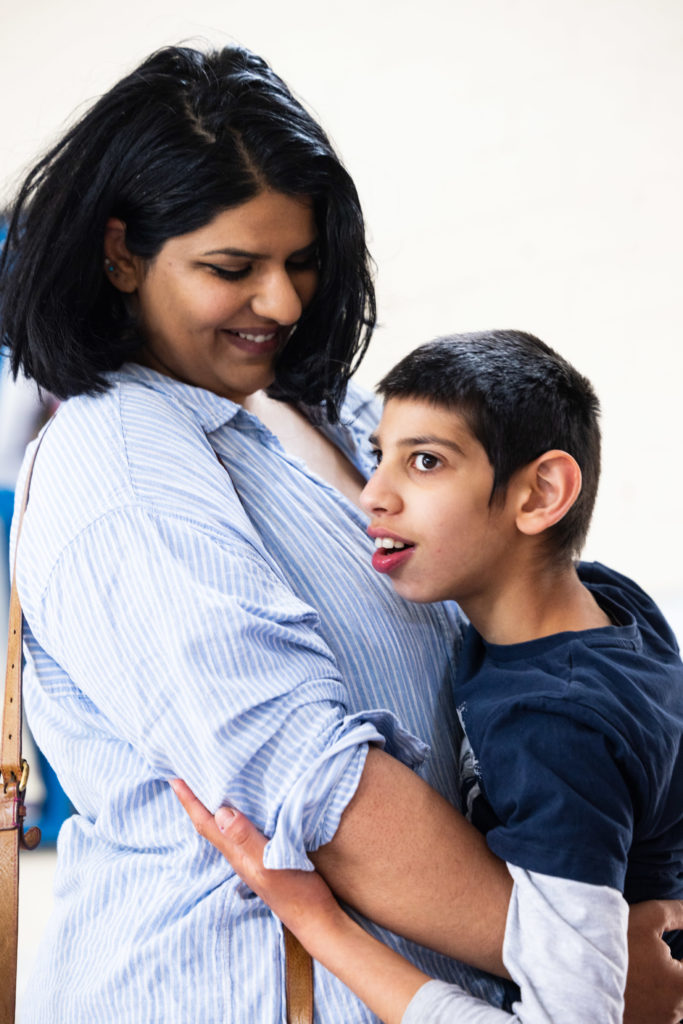Even before costs started rising, families like ours were struggling
Nakita Triguero from Bristol, is mum to 11-year old Nayan, who has a learning disability and limited speech. She spoke to Sense about the impact the cost of living crisis is having on her family.

Our family is really struggling. Both my partner and I are working longer hours to help us cope with rising costs. It’s hard. Any free minute I had is now either taken up by working or caring for Nayan.
More work means more stress. It’s impacting how well we’re supporting Nayan – it’s hard to be as patient when you’re tired.
And the extra work doesn’t mean we’re better off financially. We’re just back to where we were last year.
The cost of living crisis has forced us to make tough decisions
People don’t realise the costs disabled people and their families face, from incontinence pads to specialist childcare. We’re also at home more than other people to support Nayan, so that adds to the cost of bills.
Our electricity bill recently doubled. It’s more than the water and council tax bills together.

We have limited savings, and we’re leaving the house less to save money on extracurricular activities for Nayan.
The cost of petrol is a lot more than previously, and Nayan is very dependent on this transport. We’ve had to cut down on going to visit my family who live in London because of petrol. They’re our closest support network.
Nayan needs to be entertained or he gets down, and his behaviour can become hard to manage. In the summer, we have over seven weeks’ holiday where the schools are closed and Nayan is at home. We’re really having to think about what activities Nayan can do and what we can afford. This year we’re much more limited.
Even before the crisis, benefits didn’t cover our costs
I think there’s a general view that disability living allowance (DLA) covers activities for Nayan, but it doesn’t.
It goes towards essential things that Nayan has to have, like incontinence pads or his specialist £9 toothbrush. These things are simply to make sure Nayan can maintain a basic level of health.
We have to fund the specialist stuff and support ourselves. One activity or a couple of hours will cost £50-60.
Disabled people and their families are the ones who’ve felt the most pressure, not just now but over the last few years. This is a situation that has been building and building.
Nakita, Nayan’s mum
Our disability living allowance (DLA) didn’t go up with inflation, but the cost of everything else did go up. We have to fill this gap.
DLA didn’t cover our costs previously, let alone now. Carer’s allowance is nowhere near what you’d need to run a household with any decent quality of life.
The reality is, we do spend more than the average family and we have a tighter lifestyle than others.
Families like ours need long-term support
The financial support announced by the government is only a temporary relief. As soon as that money comes in, it’s immediately gone and swallowed up by our monthly costs.
Disabled people and their families are the ones who’ve felt the most pressure, not just now but over the last few years. This is a situation that has been building and building.
You have to think about the cost of living crisis in the context of everything that’s happened already.
Families with disabled children were on very low incomes already, without support from any services.
For many people, the cost of living crisis is a new situation.
But for us and families like ours, it’s an additional pressure to add to an already difficult situation. It was bad before. It’s been years of trying to maintain a family with very little support.
Demand more support for disabled people
During the cost of living crisis, we’re calling on the government for:
- A benefits system that meets disabled people’s needs.
- More financial support for higher energy costs.
- Targeted support for disabled people and their families.
Will you join us?

